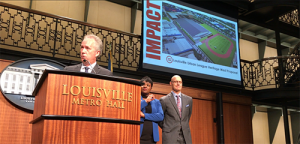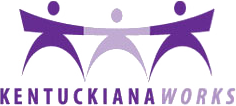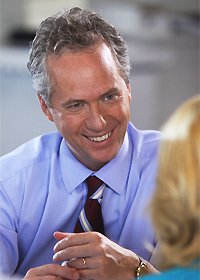 The Metro Council’s Public Safety Committee will learn more about Jefferson County’s “C.A.M.P” (Continuous Alcohol Monitoring Program) at its regular meeting on Wednesday, September 20th
The Metro Council’s Public Safety Committee will learn more about Jefferson County’s “C.A.M.P” (Continuous Alcohol Monitoring Program) at its regular meeting on Wednesday, September 20th
“These kinds of programs are now a part of law enforcement and public safety in the 21st Century and I believe it is important that the Committee get a full understanding of how it operates and what the specific goals are to keep the community safe,” says Councilman David James (D-6).
Judge Stephanie Pearce Burke, Jefferson District Court, Jefferson County Drug/Specialty Courts, will be on hand to answer questions about the program as well as Matthew Mitchell, Director of Evidence Based Practices, SCRAM Systems, and Jen Rankin, Program Development Manager, SCRAM Systems.
Similar criteria-based programs across the country have resulted in the significant reduction of drunk driving and alcohol-related crashes. Research shows that the use of a continuous alcohol monitoring bracelet for a period of 90 days significantly reduces the probability of recidivism among high risk DUI offenders. Recidivism rates for repeat DUI offenders who wear the bracelet for at least 90 days are 50% less than those who do not utilize the technology.
“With the implementation of C.A.M.P., the Jefferson County courts are now utilizing technology in efforts to reduce recidivism in DUI offenders, with the goal of increasing public safety,” says Judge Burke.
Most repeat DUI offenders do not have the internal motivation to stay sober. C.A.M.P. will aid defendants by reinforcing sobriety. The certainty of detection is a powerful deterrent and motivator to stay sober when one does not have the internal motivation or tools to do so on their own. As a direct result, public safety is greatly improved and the offender is more likely to be successful in their recovery efforts.
The Public Safety Committee will meet at 3:30pm in the Council Chambers, Historic City Hall, 601 West Jefferson Street.
All Metro Council Committee meetings are carried live on Metro TV, Spectrum Cable Channel 184 and on UVERSE Channel 99.
You can watch the meetings online by going to the Metro Council home page at http://louisvilleky.gov/government/metro-council/metro-council-clerk and click the “Watch Meetings Online” button.
 The Metro Council’s Budget and Government Accountability, Ethics and Intergovernmental Affairs Committees will focus learning about proposed changes to the pension system, the possibility of separating the County Employment Retirement System (CERS) from the Kentucky Employee Retirement System (KERS) and future costs associated with the pension system during back to back meetings on Thursday, September 21st.
The Metro Council’s Budget and Government Accountability, Ethics and Intergovernmental Affairs Committees will focus learning about proposed changes to the pension system, the possibility of separating the County Employment Retirement System (CERS) from the Kentucky Employee Retirement System (KERS) and future costs associated with the pension system during back to back meetings on Thursday, September 21st.
At 4:00 PM, the Budget Committee is hosting the Kentucky League of Cities Government Affairs Manager Bryanna Carroll for a comprehensive review of the pension system and proposed changes.
“Metro Louisville is not the only city dealing with this issue,” says Councilwoman Marianne Butler (D-15), who chairs the Budget Committee. “It is important that we understand the impact the pension will have on future budgets from a monetary as well as a recruitment and retention basis.”
At 5:00 PM, or immediately following the discussion, the Council’s Government Accountability, Ethics and Intergovernmental Affairs Committee will discuss a resolution urging the General Assembly to separate CERS from KERS. Reports indicate that CERS is funded at greater than 60% while the beleaguered KERS is funded at less than 20%. The resolution is sponsored by the respective Caucus leaders Councilmen Bill Hollander (D-9) and Robin Engel (R-22).
“With a proposed Special Session planned for the coming weeks to review possible reforms, this resolution is very timely and other cities and county governments are advocating the separation to state lawmakers,” says Councilman Pat Mulvihill (D-10), the Chair of the Committee.
State Budget Director John Chilton recently estimated that Louisville Metro might possibly have to contribute nearly $50 million to cover Metro’s pension obligation.
All Metro Council Committee meetings are carried live on Metro TV, Spectrum Cable Channel 184 and on UVERSE Channel 99.
You can watch the meetings online by going to the Metro Council home page at http://louisvilleky.gov/government/metro-council/metro-council-clerk and click the “Watch Meetings Online” button
 Following an extensive community engagement effort and a detailed review conducted by a committee of Metro staff and citizen volunteers, Mayor Greg Fischer today announced that the Louisville Urban League has been selected to develop a state-of-the-art multi-sports complex anchored by an indoor track and field facility on the 24-acre Heritage West property located at 3029 W. Muhammad Ali Blvd.
Following an extensive community engagement effort and a detailed review conducted by a committee of Metro staff and citizen volunteers, Mayor Greg Fischer today announced that the Louisville Urban League has been selected to develop a state-of-the-art multi-sports complex anchored by an indoor track and field facility on the 24-acre Heritage West property located at 3029 W. Muhammad Ali Blvd.
“The Urban League’s plan reflects the community’s desire for a project that will bring immediate life to this key piece of land, and provide healthy outlets for youth and adults to engage in a variety of sports and other activities,” said the Mayor. “This is an exciting process, and I look forward to returning to this site soon to break ground on a new development that brings the vision and values of the people of Russell to life.”
The complex will be designed to host a variety of sporting events potentially sponsored by organizations such as USA Track and Field (USATF), the National College Athletics Association (NCAA), colleges and universities, and local and regional public and private schools. The facility also will feature retail space and related amenities.
“We are thrilled to be chosen as the development partner for the Heritage West property,” said Sadiqa Reynolds, President and CEO of the Louisville Urban League. “This project will bring 20,000 visitors with disposable income into Louisville and more importantly into west Louisville. Louisville will be a U.S. track and field destination.”
(Learn more about the Louisville Urban League’s plan)
The total project cost is expected to be $30 million.
Heritage West is located on the western border of the Russell neighborhood, which is currently seeing unprecedented levels of investment, including the $29.5 million mixed-income, mixed-use redevelopment of Beecher Terrace, a project expected to leverage at least $200 million in new investment; Waterfront Park Phase Four expansion; relocation of Passport Health Plan’s headquarters; and construction of a new YMCA at 18th and Broadway.
“The community has anxiously awaited an exciting development and concept for the property that will help transform the neighborhood and help put west Louisville on the map,” said Councilwoman Cheri Bryant Hamilton, District 5. “We hope that this athletic facility project will become a reality for Heritage West and will be a place to help our young people realize their dreams.”
The city began the Heritage West redevelopment process in March, when it issued a Solicitation of Interest that drew four innovative and exciting proposals, one of which was eventually withdrawn. More than 125 public comments were received on the four proposals.
The West Louisville Community Council (WLCC), a grassroots organization of residents, neighborhood associations, places of worship, educational and cultural institutions, focused on responsible, citizen-engaged redevelopment of vacant and abandoned properties in west Louisville, has been a key partner throughout the review and engagement process.
The WLCC has co-hosted community visioning meetings and public review meetings for the Heritage West Property, and sponsored an art contest that led to the renaming of the site as “Heritage West.”
“Positive outcomes can be achieved when community, organizations, and government agencies strategize collectively around issues impacting people. Heritage West is an example of how our collective resources can spur transformation within a community,” said Natasha Cummins, Chair of the Executive Committee, WLCC. “Today marks the day where the community’s voice was heard and decision makers took heed. We support this announcement and know that this initiative will create a positive vibe in our community and gain national recognition. West Louisville Community Council will continue to work closely with all involved and expect Heritage West to focus on community benefits as the project evolves.”
To read more about the project, visit https://louisvilleky.gov/sites/default/files/advanced_planning/lul_track…
 Maya Williamson was struggling, even homeless briefly, and wasn’t sure she would ever realize her dream of going to college. Then, she connected with a Louisville program that helped her get financial aid and stay on track with her studies. Now, Maya is pursuing a business degree at Jefferson Community & Technical College, planning to be the first in her family to graduate college.
Maya Williamson was struggling, even homeless briefly, and wasn’t sure she would ever realize her dream of going to college. Then, she connected with a Louisville program that helped her get financial aid and stay on track with her studies. Now, Maya is pursuing a business degree at Jefferson Community & Technical College, planning to be the first in her family to graduate college.
Maya says the support she got from the KentuckianaWorks College Access Center (KCAC) made the difference.
“I don’t think I would have made it to college without all their help,” she said.
The KCAC provides a variety of free services that help people go to college, including help in applying for financial aid, and in finding and enrolling in the school that’s right for them. This past year, the center assisted more than 3,000 people — more than two-thirds of them were lower-income, and 83 percent were the first in their family to attend college.
Mayor Greg Fischer joined the KCAC adult program’s staff, clients and partners in marking its 40th year of operation by dedicating new and improved space in the ArtSpace Building at 323 W. Broadway, next to the Brown Theater.
“Helping people realize their dream of higher education is not only critical for each student and their family, it’s critical to building a stronger workforce and economy,” the Mayor said. “It’s also key to building safer neighborhoods because greater education leads to better jobs and careers that can break the cycle of poverty, hopelessness and violence.”
A critical time for people wanting to attend college begins October 1, when the application for federal student financial aid, known as FAFSA, can be filed.
“Getting financial aid is a key component to make your dreams of college a reality,” said Lashala Goodwin, executive director of KCAC. “Our counselors can guide you through the process and maximize your chances of getting funding and other support.”
Goodwin said many schools require a completed FAFSA form to be eligible for any type of student aid, including grants, work-study, student loans and scholarships. And it’s especially important to act quickly in Kentucky, which is one of only a few states that awards financial aid on a first-come, first-serve basis. People who wait to file the FAFSA could lose out on state support for their education.
KCAC, which is funded by federal TRIO grants, operates two programs, including one that focuses on helping adults 19 and older like Williamson go to college.
A second program works directly with high school students, grades 9-12, helping them keep on track with their studies and develop a plan for college. Program counselors are based in five JCPS schools: Fairdale, Iroquois, Liberty, Valley and Western, and worked one-on-one with more than 800 students during the last school year.
Those seeking assistance through KCAC can contact the center at (502) 584-0475 or go to kentuckianaworks.org/KCAC. There is no charge for any of the services.
The program’s new space on Broadway also houses KentuckianaWorks’ Degrees Work program, which helps boost college attainment by contracting directly with employers such as Humana, Universal Woods and Louisville Metro Government to help their employees return to college.
Both the KCAC and Degrees Work are important contributors to the work being done by 55,000 Degrees, the city’s education movement.
 Mayor Greg Fischer announced today that a public-private partnership to help people who are visually impaired find points of interest in Louisville will expand, thanks to a $250,000 grant from the James Graham Brown Foundation.
Mayor Greg Fischer announced today that a public-private partnership to help people who are visually impaired find points of interest in Louisville will expand, thanks to a $250,000 grant from the James Graham Brown Foundation.
The Indoor Explorer program, which is operated by the American Printing House for the Blind and created in partnership with the city’s Office for Civic Innovation, places low-power Bluetooth beacons in public buildings that feed information about amenities and points of interest to an app called Nearby Explorer.
People who are visually impaired will use this information to independently find their way through and around the public buildings to find features, such as an airline ticket counter at the airport.
“The American Printing House for the Blind is a nationally recognized leader in innovation, and so is Louisville Metro Government — so this is a natural partnership,” Mayor Fischer said. “This program will expand opportunities for citizens and visitors with vision loss, and is another example of big ideas becoming a reality in Louisville through collaboration, good thinking and hard work.”
The grant will fund the installation of low-power Bluetooth beacons inside additional public buildings, expanding the uses of the Nearby Explorer app for independent travel, employment, civic engagement, tourism, education, dining, recreation, shopping and more. The beacons will also improve indoor navigation — which is limited under current technology — for app users who are blind and visually impaired.
“We are energized by Mayor Fischer’s commitment to making APH’s vision of a world where people who are blind or visually impaired can work, learn and live without barriers a reality here in Louisville,” said APH President Craig Meador. “Working together we have the opportunity to show the world what a truly welcoming community looks like by making Louisville the most accessible city for people who are blind and visually impaired.”
The project aligns with Louisville Metro’s Smart City initiatives, which also include the Waze app for traffic notifications, collaboration with the app IFTTT, and the LouieLab civic innovation space in downtown Louisville.

Credit: KY State Parks
Students from nine more Kentucky schools are taking field trips to a Kentucky State Park this fall thanks to a transportation grant from the Kentucky State Parks Foundation.
The KSPF’s “Inside Out Education” initiative allows schools to seek the grants that enable students to learn about the environment, history or culture at a Kentucky State Park. The recent round of grants brings the total number of students served to 3,919 with 56 grants awarded.
“We’re very proud that more students are having the opportunity to experience the outdoors at a Kentucky State Park with the help of these grants,” Parks Commissioner Donnie Holland said. “These students will get to see history and the environment up close.”
The nine schools and parks they plan to visit are:
Beechgrove Elementary, Kenton County, Big Bone Lick State Historic Site
Madison County High School, Madison County, Carter Caves State Resort Park
Daniel Boone Elementary, Madison County, Waveland State Historic Site
Frayser Elementary, Jefferson County, Old Fort Harrod State Park
Owensboro Middle School, Owensboro, John James Audubon State Park
Muhlenberg County High School, Muhlenberg County, Pennyrile Forest State Resort Park
Muhlenberg County High School Muhlenberg County, Jefferson Davis State Historic Site
Longest Elementary School, Muhlenberg County, John James Audubon State Park
Longest Elementary School, Muhlenberg County, Wickliffe Mounds State Historic Site
The Muhlenberg County school trips are made possible by a grant from the Felix E. Martin Jr. Foundation.
For 2018 spring/summer consideration, applications are due March 1, 2018. For more information, visit: http://www.kentuckystateparksfoundation.org/about/inside-out-education/
For more information about Kentucky State Parks, visit: www.parks.ky.gov
 On the eve of an important ACC football showdown between the University of Louisville and Clemson University, Mayor Greg Fischer of Louisville and Mayor J.C. Cook III of Clemson are putting a friendly wager on the line: Bourbon.
On the eve of an important ACC football showdown between the University of Louisville and Clemson University, Mayor Greg Fischer of Louisville and Mayor J.C. Cook III of Clemson are putting a friendly wager on the line: Bourbon.
Mayor Fischer is putting up a collection of small bottles from Louisville distilleries — Angel’s Envy, Old Forester, Evan Williams, Mitchter’s, Kentucky Peerless, Bulleit Bourbon, Rabbit Hole and Jim Beam — while Clemson’s wager is a bottle of Six & Twenty, from a South Carolina artisan distillery owned by two Clemson grads.
Its five-grain bourbon is made with all South Carolina grown grains, Mayor Cook said. “As mayor of Clemson, I am proud to say both our football team and our South Carolina bourbon will bring their A-game to the table,” he said.
Though Clemson has won all three games played since U of L joined the ACC, Mayor Fischer is extremely confident about his team’s chances.
“I look forward to trying a sip of my Six & Twenty winning after the Cards win, although I still have my doubts about any bourbon that’s not made in Kentucky,” he said. “I may just save it to celebrate when our quarterback, Lamar Jackson, wins his second Heisman.”
Mayor Cook said he’s looking forward to the game, which has drawn ESPN’s “College GameDay” back to Louisville for the second consecutive season.
Louisville vs. Clemson “has become one of the most exciting rivalries in football, and it’s so great to see how the Louisville fans welcome us with such hospitality,” he said. “We may have to start naming this the Friendly Bowl.”
 Weather
Weather Traffic
Traffic @LouisvilleDispatch
@LouisvilleDispatch @LouisvilleDisp
@LouisvilleDisp Subscribe
Subscribe